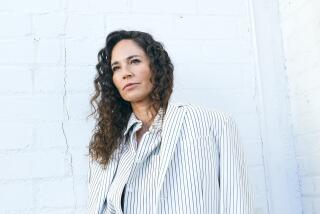LEGEND WARY
- Share via
INDIANAPOLIS — Larry Bird is losing.
In these parts, that’s hard to believe. This is Larry Legend, the guy who took Indiana State to the NCAA finals, who won three titles and three MVP awards with the Boston Celtics as a player, took the Indiana Pacers to the finals as a coach and even helped the WNBA’s Indiana Fever reach the finals as team president this past season.
He hasn’t been so successful as the Pacers’ president.
The team has missed the playoffs for the past three seasons, and fans in Bird’s home state -- where streets in Terre Haute and French Lick bear his name -- are getting antsy. Two seasons ago, attendance was the worst in the league, and that only improved to 28th out of 30 teams last season.
“There’s no question about it, people want instant results,” Bird told the Associated Press during an interview by phone. “They look at what I’ve accomplished in my career and they expect things to happen right away.”
If the 52-year-old Hall of Famer is feeling pressure, he doesn’t show it.
“I love a challenge,” he said. “This is one of my greatest challenges. I know it’s going to take time, but in the long run, I can see us having a lot of success.”
What’s unclear is how long Bird’s long run will be. He’s entering the final year of his contract and there have been no discussions of an extension.
“We have not had any conversations,” team owner Herb Simon told the Associated Press. “We will, certainly. I’d like to keep him, but he has his own mind. We have to let him do what he wants to do.”
Right now, Bird wants nothing more than to revive the Pacers, a task that has been filled with challenges.
The Pacers’ downward spiral can be traced to the brawl between Pacers players and Pistons fans in 2004, which started when Ron Artest went after a fan who threw a drink on him. Indiana’s reputation took more hits as a line of players found trouble with the law.
Bird replaced the talented but troubled players with hardworking overachievers known for good character, qualities he possessed as a player. While critics say he can’t succeed by creating a team of players in his image, those who have known him and worked with him believe he’ll win again.
“I know his demeanor, and I know his tenacity,” former Indiana State coach Bill Hodges said. “If he’ll surround himself with people that aren’t ‘yes’ people, with people who will tell him how it is, he’ll get the job done.”
Mel Daniels, the team’s director of player personnel, understands Bird’s dilemma because of his own background in Indiana. The two-time American Basketball Association MVP won three championships with the Pacers in the early 1970s and has worked for the franchise since 1988. His jersey is one of five the Pacers have retired.
“He’s under the microscope,” Daniels said. “He is a legend in Indiana. He came with a lot of pride, but this situation has put more pressure on him because it’s up to him, and everybody’s looking to him to make this situation right.”
Bird’s affiliation with the Pacers began when team CEO Donnie Walsh discussed the team’s coaching vacancy with him in 1997.
“When he came in for his interview, he told me everything he was going to do from the beginning of training camp all the way through to the finals,” said Walsh, now president of the New York Knicks. “When I look back on it, he did everything he said he was going to do.”
After Bird was the NBA’s coach of the year in 1998, led the team to the conference finals all three years he coached and took the team to the NBA Finals in 2000, he left coaching.
Walsh made him president in 2003, and the two shared decision making duties while Bird was groomed to step in. When Walsh left last year, he felt Bird was ready.
But Bird wasn’t taking over a typical job.
The Pacers faced the Artest incident and the resulting suspensions, then granted Artest’s public trade request the following season. After that, a parade of players got in trouble with the law, with Stephen Jackson, Jamaal Tinsley, Marquis Daniels and Shawne Williams the most prominent among them.
Bird kept chipping away until he completely remade the team. None of the players who got in trouble with the law remain. Tinsley, the last to go, was waived this summer with two years left on his deal.
“Without putting it on anybody’s head, we just said that we were going to change the culture,” Bird said. “We heard our fans loud and clear. My first task was to try to move as many of the guys as I possibly could. We’ve done that.”
Bird’s main rebuilding block is All-Star Danny Granger. The forward averaged 26 points per game last season and was named the league’s most improved player.
Last year, the Pacers added guard Brandon Rush and center Roy Hibbert on draft day. This year, they chose North Carolina forward Tyler Hansbrough and Connecticut guard A.J. Price.
This off-season, Bird also added free-agent guards Dahntay Jones, Earl Watson and Luther Head, and forward Solomon Jones to strengthen the team’s porous defense.
Some critics and fans don’t agree with Bird’s plan or the players he’s chosen to execute it even though salary-cap restrictions have prevented him from luring big names. Bird doesn’t care.
“Not at all,” he said. “If I did, I never would have took the job.”
More to Read
Go beyond the scoreboard
Get the latest on L.A.'s teams in the daily Sports Report newsletter.
You may occasionally receive promotional content from the Los Angeles Times.










